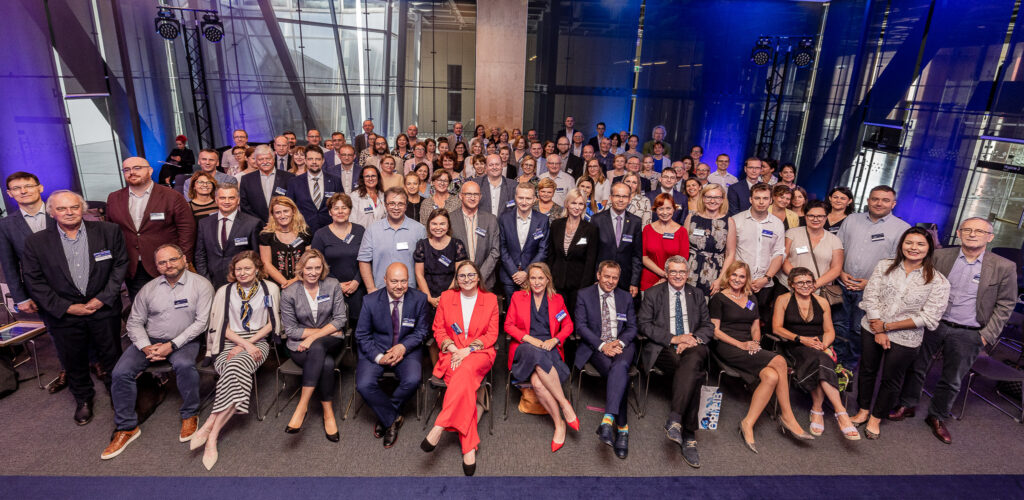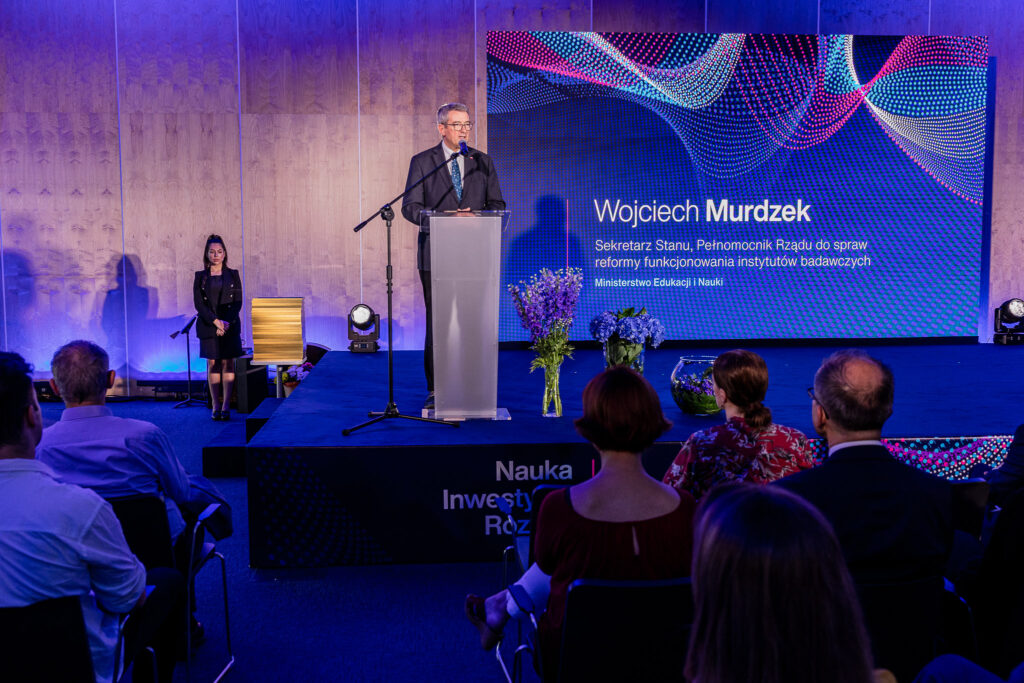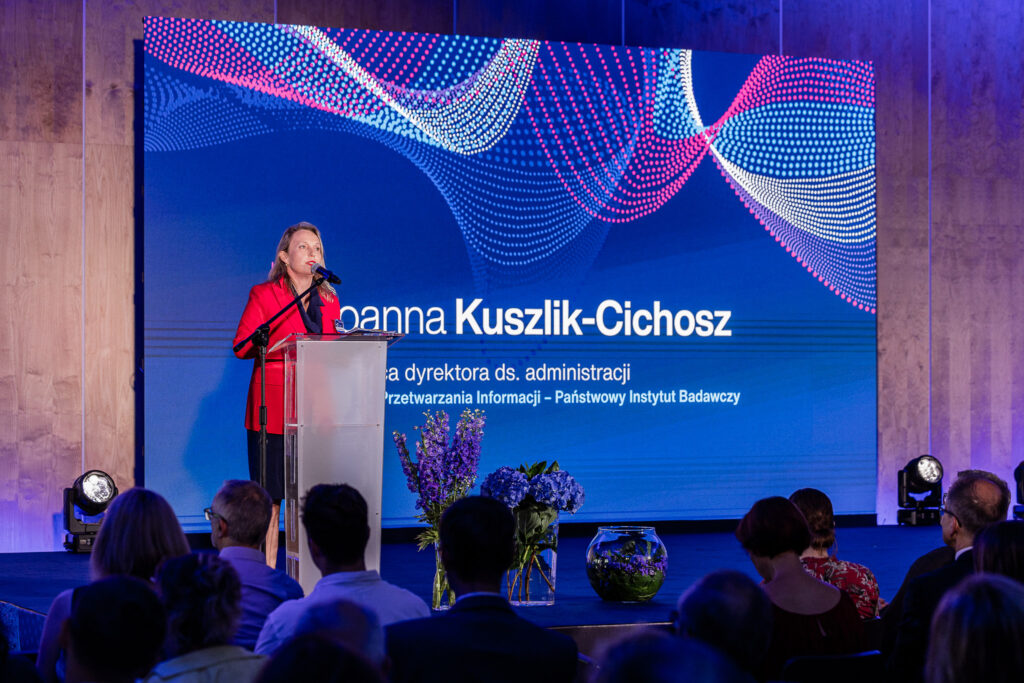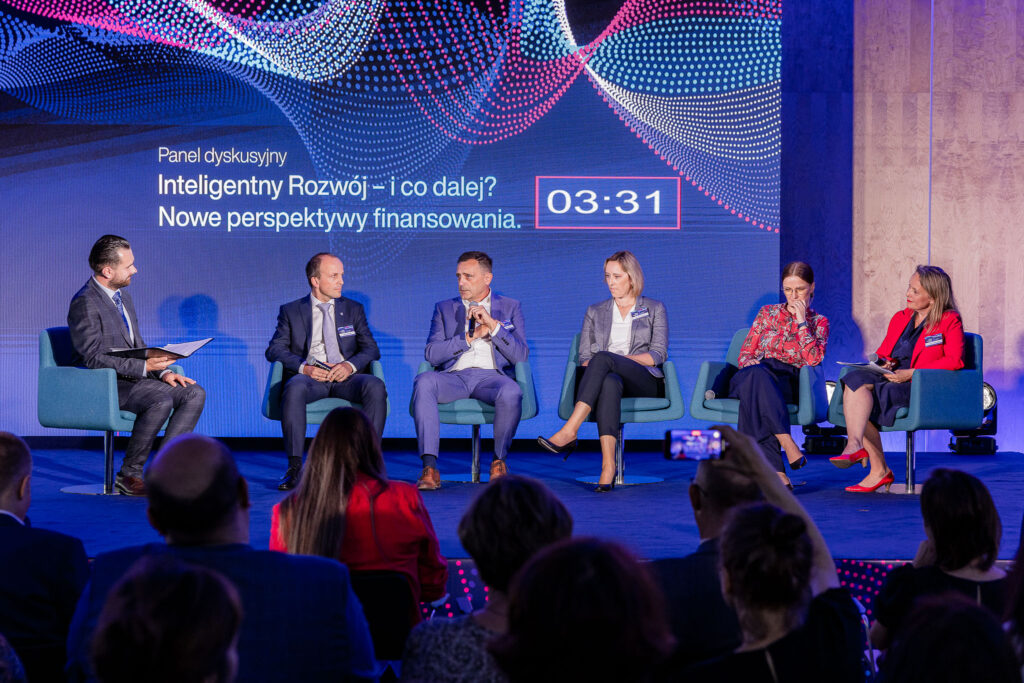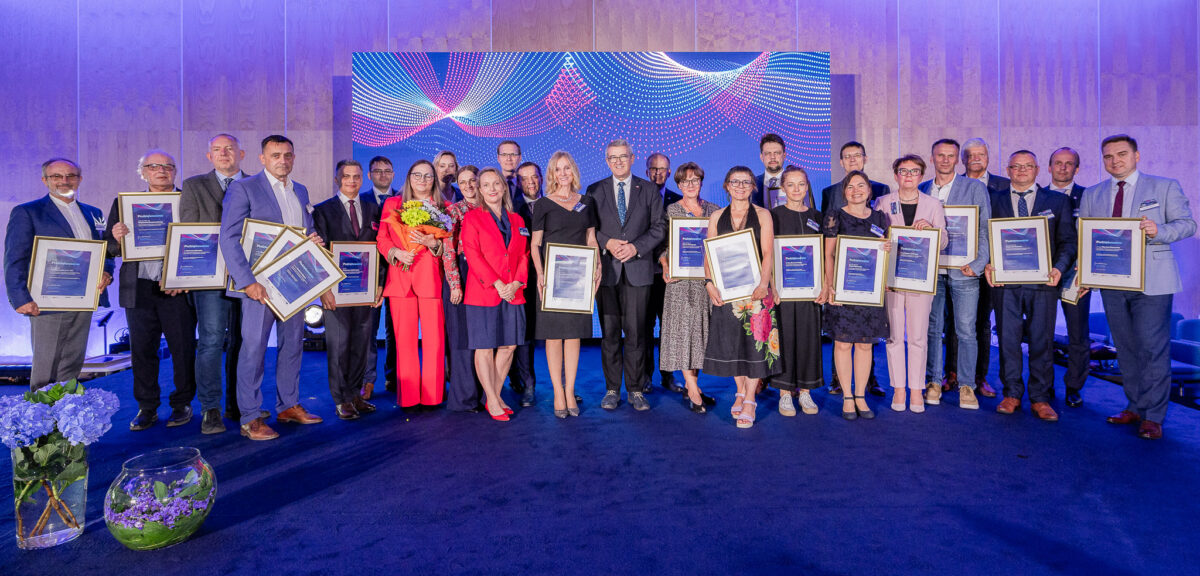During the Science, Investments, Development conference on 22 June, 2023, a summary was presented regarding the implementation of Action 4.2: ‘Development of modern research infrastructure in the science sector’, conducted as part of the Smart Growth Operational Programme (SGOP). The programme has subsidised the science sector with EU funding of over PLN 2.5 billion. The allocation of funds will amplify the research potential of recognised research centres across Poland. The supported initiatives are of strategic importance and encompass a wide range of disciplines. The majority of the twenty-six projects funded as part of the SGOP have been implemented by consortia.
No science, no economy
‘To maintain its strategic significance in the national economy, Polish science requires investment in research infrastructure. Conducting research that aims to implement innovative solutions is impossible without modern equipment. Another goal of the SGOP projects is to ensure that modern infrastructure becomes available to entrepreneurs and other interested parties. The SGOP undertakings offer solutions that align with current socioeconomic needs. I am confident that they will deliver a range of benefits to our society,’ said Joanna Kuszlik-Cichosz, Head of Administration at the National Information Processing Institute (OPI), which organised the conference. ‘The magnitude of the implemented projects and the significance of Action 4.2 becomes most evident when quantified by numbers. Action 4.2 involves one hundred and forty-four beneficiaries, twenty-six projects, thirty-four modern laboratories, and a subsidy of PLN 2.5 billion. The impact of these initiatives, which are often part of global research projects, is enormous,’ added Ms Kuszlik-Cichosz.
The significance of investing in modern research infrastructure was also stressed by Wojciech Murdzek, Secretary of State at the Polish Ministry of Education and Science (MEiN), who attended the conference.
‘The development of modern research infrastructure is a key element of effective scientific and economic policy in countries that focus on the creation and successful commercialisation of innovative solutions. This matter is receiving increased attention from the European Commission and business organisations. The initiatives focus on purely scientific infrastructure—such as the European Strategy Forum on Research Infrastructures (ESFRI)—and on efforts to create and develop technological infrastructures that bridge the gap between the research and industry sectors,’ said Mr Murdzek.
‘MEiN has been advocating the development of research infrastructure for many years. With active engagement from our partners—OPI and the Ministry of Development Funds and Regional Policy—we have successfully persuaded the European Commission to prioritise substantial support for infrastructure initiatives in the cohesion policy. As a result, Polish scientific institutions have been granted hundreds of millions of Polish zloty to construct modern laboratories and equip them with cutting-edge apparatus. Using this equipment is beneficial both to Polish science and to Polish entrepreneurs. We believe that the emerging modern laboratories in Poland will serve as nexuses between eminent scientists who collaborate on projects funded under, for example, the Horizon Europe programme, and their innovation-oriented partners from the industry sector,’ added Mr Murdzek.
World-class supercomputers and the fight against COVID–19
The Science, Investments, Development conference was attended by representatives of all twenty-six projects funded under SGOP Action 4.2 to whom the organisers extended gratitude for their commitment and readiness to overcome adversity. SGOP projects posed unprecedented challenges given the disrupted supply chains, delays, and significantly increased risks, as most beneficiaries had to operate during the COVID-19 pandemic and the ongoing war in Ukraine. During these trying times, their accomplishments should be acknowledged with even greater appreciation. The grantees originated from almost every region in Poland. They represented various fields, including computer science, medicine, pharmacy, genomics, geology, archaeology, history, physics, environmental protection, social sciences, and other branches of the humanities. The beneficiaries purchased supercomputers that were ranked in the top 500 best computers in the world, as well as electron microscopes that enabled the structure of the SARS-CoV-2 virus to be explored.
The end of SGOP: what’s next?
Although all of the SGOP projects will be discontinued by the end of 2023, a new programme—European Funds for Smart Economy (EFSE)—will soon launch. To assist the attendees in using their knowledge in projects conducted as part of the new programme, OPI organised a dedicated panel called Smart Growth – What’s Next? New Funding Perspectives. The panel offered SGOP beneficiaries and representatives a valuable opportunity to exchange experience, which could be instrumental in the effective execution of new initiatives under EFSE.
Smart Growth Operational Programme (SGOP)
The SGOP is a national operational programme that funds research, development and innovation. Its key objective is to foster innovation in the Polish economy by increasing enterprises’ R&D investment. OPI is one of the institutions responsible for the implementation of so-called Priority Axis IV ‘Increase of the scientific and research potential’, which is part of Action 4.2 ‘Development of modern infrastructure in the science sector’.
The goal of Action 4.2 is to support projects that pertain to extensive strategic infrastructure of national and international importance included in the Polish Roadmap for Research Infrastructures. Additionally, the initiative seeks to provide entrepreneurs and other interested parties with access to such infrastructure. The beneficiaries of Action 4.2 include higher education institutions, scientific institutes of the Polish Academy of Sciences, research institutes, and consortia of various scientific entities and enterprises.
